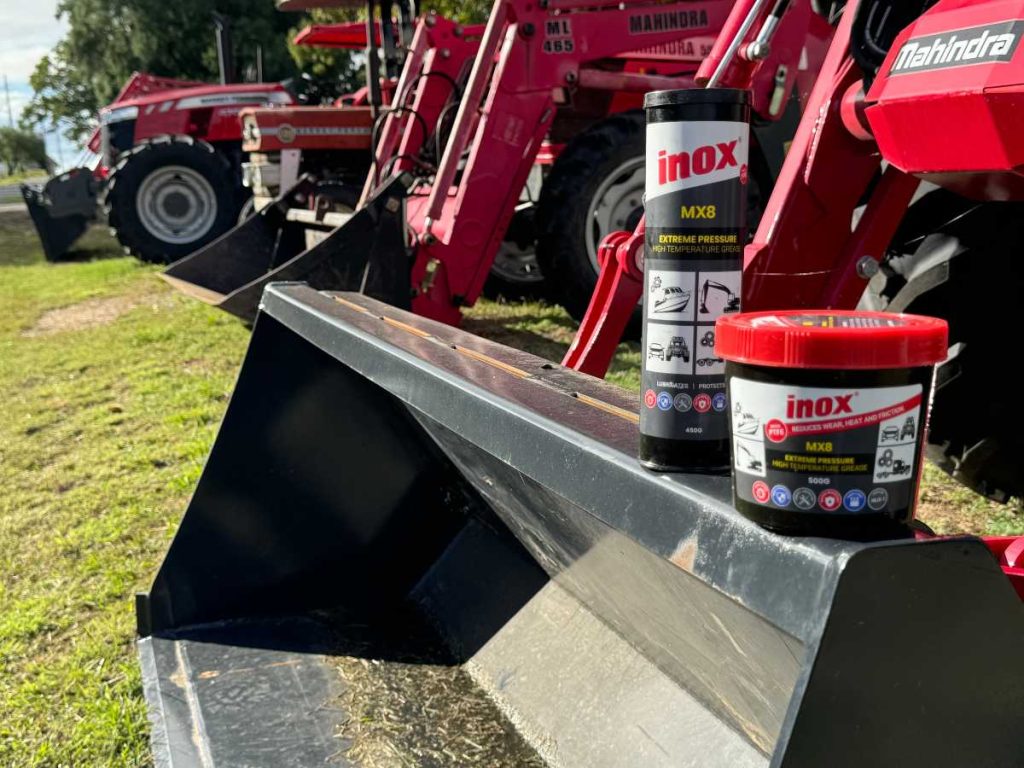Are you ready to get the most out of your farm machinery during the off-season? Proper maintenance is key to ensuring your equipment runs smoothly when you need it most.
Imagine the peace of mind that comes with knowing your machinery is in top shape, ready to tackle any task without unexpected breakdowns or costly repairs. This isn’t just about preventing problems; it’s about saving you time and money in the long run.
In this guide, we’ll walk you through essential maintenance tips that will keep your farm machinery in peak condition, so you can focus on what truly matters—growing your farm’s productivity and profitability. Stick with us, and you’ll discover how simple steps can make a big difference in the longevity and efficiency of your valuable equipment.
Cleaning And Storing Equipment
Proper cleaning and storing of farm machinery during the off-season is essential. It prevents damage, ensures longevity, and saves money on repairs. Neglecting these steps can lead to rust, wear, and costly replacements. Regular maintenance helps machinery perform efficiently when the farming season begins. Below are key strategies for cleaning and storing your equipment effectively.
Inspect And Remove Debris
Start by inspecting the equipment for dirt and debris. These can affect performance and cause damage. Use brushes or compressed air to remove dirt from hard-to-reach areas. Ensure all parts are clean before proceeding to the next step.
Wash Thoroughly
Washing machinery removes stubborn grime and residues. Use mild soap and water for cleaning. Avoid harsh chemicals that can erode metal surfaces. Rinse thoroughly to remove soap residues which can attract dirt.
Dry Completely
After washing, dry the machinery completely. Moisture can lead to rust and corrosion. Use cloths or air drying methods. Pay extra attention to joints and hidden areas where water might accumulate.
Lubricate Moving Parts
Lubrication keeps moving parts functioning smoothly. Apply oil or grease to joints and gears. It reduces wear and prevents rust. Check for any signs of excessive wear or damage during lubrication.
Check For Repairs
Inspect equipment for any necessary repairs. Fixing minor issues during the off-season prevents major problems later. Look for worn-out parts, leaks, or signs of damage. Address these issues promptly.
Store In A Dry Place
Store machinery in a dry, covered area. This protects it from weather damage. Ensure the storage area is clean and free from pests. A climate-controlled environment is ideal.
Cover Equipment
Cover stored machinery with tarps or covers. This keeps dust and moisture away. Make sure covers fit well and allow air circulation. Proper coverage prevents accidental damage.

Routine Maintenance Checks
Farm machinery needs care, especially during the off-season. Routine maintenance checks are crucial. They ensure your equipment stays in top condition. These checks help prevent costly repairs and breakdowns. Regular attention keeps the machinery running smoothly. Let’s explore essential maintenance tasks.
Inspect And Clean Machinery
Start by inspecting your machinery. Look for signs of wear or damage. Clean all parts thoroughly. Remove dirt, dust, and debris. Pay attention to hidden areas. Clean machinery improves performance and longevity.
Check Fluid Levels
Fluid levels are vital for machinery operation. Check oil, coolant, and hydraulic fluids. Ensure they are at recommended levels. Replace any fluids that appear dirty or contaminated. Proper fluid maintenance prevents engine damage.
Examine Belts And Hoses
Belts and hoses can wear out over time. Check for cracks or fraying. Ensure belts are tight and in good condition. Replace damaged belts and hoses immediately. This prevents unexpected failures during operation.
Test Battery And Electrical Systems
Test the battery voltage. Ensure it’s holding a charge. Inspect the electrical systems for any issues. Check wiring and connections. Clean battery terminals to prevent corrosion. A well-maintained battery ensures reliable starts.
Lubricate Moving Parts
Moving parts need lubrication. Apply grease to joints, bearings, and gears. Use the right type of lubricant for each part. Proper lubrication reduces friction and wear. It also extends the life of your machinery.
Inspect Tires And Tracks
Tires and tracks bear the load of the machinery. Check for proper inflation and any signs of wear. Look for cuts, punctures, or uneven tread. Replace worn-out tires or tracks to ensure safety and efficiency.
Store Machinery Properly
Store machinery in a dry, sheltered place. Protect it from weather elements. Use covers or tarps if necessary. Proper storage prevents rust and damage. It keeps your equipment ready for the next season.
Preventive Repairs And Upgrades
During the off-season, farm machinery sits idle. This is the perfect time for preventive repairs and upgrades. Taking steps now can save headaches later. It ensures equipment runs smoothly when needed most. Regular maintenance also extends the lifespan of your machinery. Upgrades boost efficiency and can even save costs in the long run. Let’s explore how you can keep your machinery in top shape.
Inspect Key Components
Begin with a thorough inspection of key components. Check belts, hoses, and filters for wear and tear. Look for signs of cracks or leaks. Inspect electrical connections for corrosion. Addressing these issues early prevents bigger problems later.
Replace Worn Parts
Replace any parts that show significant wear. Worn parts can lead to machinery failure. Keep a stock of common replacement parts. This ensures you’re prepared for any needed repairs.
Upgrade Outdated Systems
Consider upgrading outdated systems. Modern technology can improve performance and efficiency. GPS systems, for instance, enhance precision. Upgrading can also improve safety features.
Lubricate Moving Parts
Lubricate all moving parts regularly. Proper lubrication reduces friction and wear. It also prevents rust and corrosion. Use manufacturer-recommended lubricants for best results.
Check Fluid Levels
Check all fluid levels, including oil, coolant, and hydraulic fluids. Low fluid levels can damage machinery. Refill or replace fluids as needed. This simple step ensures optimal performance.
Test Equipment Functions
Test all equipment functions to ensure they work properly. Run each machine and listen for unusual noises. Address any abnormalities immediately. This proactive approach helps identify hidden issues.
Document Maintenance Activities
Keep a detailed record of all maintenance activities. Documentation helps track work done and identifies recurring issues. This record is invaluable for future reference.

Proper Storage Environment
Farm machinery needs a dry and clean storage environment during the off-season. This prevents rust and damage from moisture. Proper storage ensures equipment stays in good condition for next season’s use.
In the off-season, maintaining farm machinery is crucial. Proper storage ensures longevity and efficiency. Machinery left exposed to harsh conditions can deteriorate quickly. A controlled environment prevents rust, decay, and costly repairs. Understanding the essentials of proper storage can save time and money.Choosing The Right Location
Select a dry, sheltered area for machinery storage. Avoid places prone to flooding or dampness. Moisture can cause rust and damage to metal parts. A well-ventilated space is ideal. It helps in reducing humidity levels.Temperature Control
Extreme temperatures can harm machinery. Consistent temperature levels protect sensitive components. Use insulated storage to maintain a stable environment. This prevents cracking and warping of rubber and plastic parts.Protection From Pests
Pests can cause significant damage to machinery. Store equipment in a place free from rodents and insects. Use traps and repellents to keep pests away. Regular checks help in identifying pest activity early.Regular Cleaning Before Storage
Clean equipment thoroughly before storage. Remove dirt, grease, and debris from all parts. Clean machinery lasts longer and performs better. Use a pressure washer for tough grime. Allow equipment to dry completely before storing.Cover And Seal
Cover machinery with weatherproof tarps or sheets. Ensure covers fit snugly to keep out dust and moisture. Seals and covers protect machinery from external elements. Check covers regularly for wear and tear. Replace damaged covers promptly to ensure protection. Proper storage environment is vital for farm machinery care. With these steps, machinery remains in excellent condition. Ready for the next farming season.
Conclusion
Caring for farm machinery during the off-season is crucial. It ensures smooth operations when needed. Clean the equipment thoroughly. Check for any worn-out parts. Replace them promptly. Store machinery in a dry, safe place. Regular maintenance extends the lifespan. Saves money in the long run.
Keep a detailed maintenance log. It helps track repairs and replacements. Educate your team on maintenance best practices. Simple steps lead to big savings. Healthy machinery means a productive farm. Invest time now to avoid future issues. Make maintenance a routine.
Your farm will thank you.


